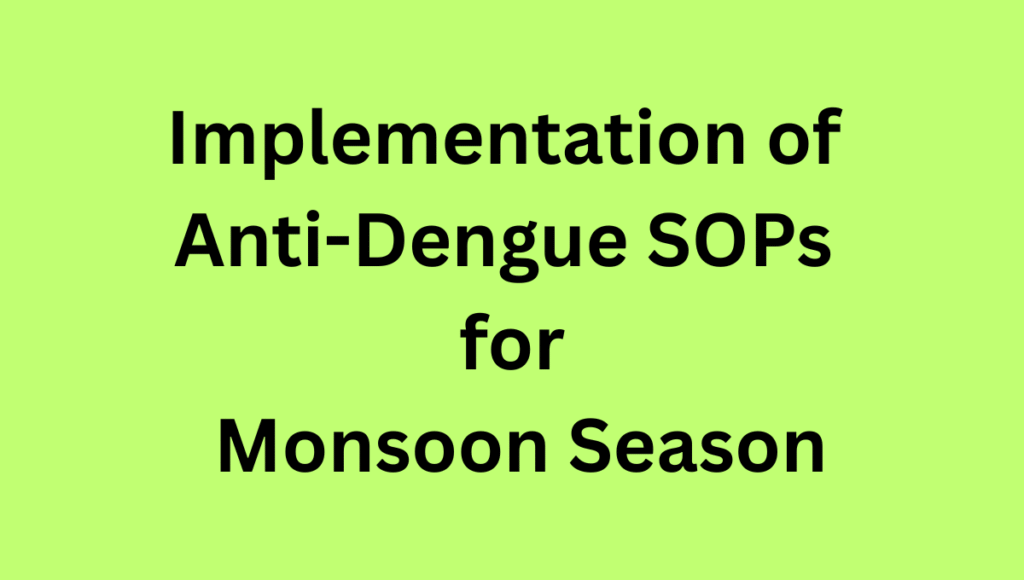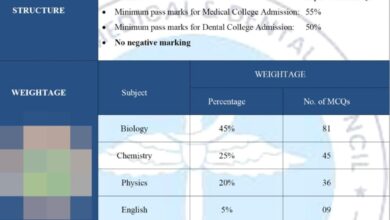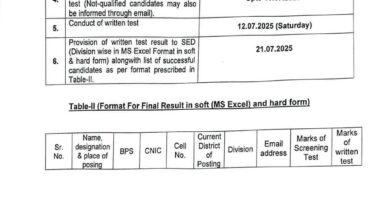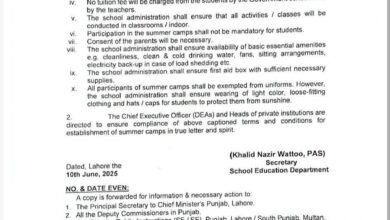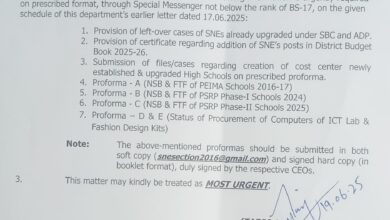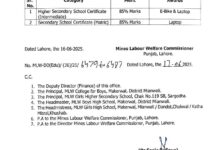Implementation of Anti-Dengue SOPs for Monsoon Season
Contents
Implementation of Anti-Dengue SOPs for Monsoon Season
Introduction
The monsoon season brings relief from the scorching heat but also poses significant health risks, particularly the spread of dengue fever. The Government of Punjab’s School Education Department has issued a directive dated June 27, 2025, emphasizing the need for strict compliance with anti-dengue Standard Operating Procedures (SOPs) to mitigate mosquito breeding and prevent outbreaks. This article explores the importance of these measures and provides a detailed guide for implementation.
Why Monsoon Season Increases Dengue Risk
With the onset of the monsoon, stagnant water accumulation in areas with inadequate drainage systems creates ideal breeding grounds for mosquitoes. This increases the transmission risk of dengue, a viral disease transmitted by the Aedes mosquito. Proactive measures are crucial to safeguard public health, especially in school environments where children are most vulnerable.
Key Anti-Dengue SOPs
- Keeping school premises, water tanks, and rooftops clean.
- Clearing out junk and debris.
- Removing any stagnant water.
- Fixing water leakages.
- Cutting grass in lawns and playgrounds.
- Ensuring a mosquito-free environment.
Implementation Guidelines
School authorities are urged to direct all anti-dengue focal persons and heads to enforce these SOPs diligently. The directive highlights the importance of uploading snaps of anti-dengue activities via Android phones or tablets on the dengue dashboard for monitoring purposes. For more details on dengue prevention, visit WHO Dengue Guidelines.
Monitoring and Compliance
The Director (Monitoring) has stressed that this matter should be given priority. District-level coordination, as outlined in the directive, ensures strict adherence to these guidelines. Schools can refer to Punjab Government Health Updates for additional resources.
Table: Dengue Prevention Checklist
| Task | Frequency | Responsible Party |
|---|---|---|
| Clean water tanks | Weekly | School Staff |
| Remove stagnant water | Daily | Anti-Dengue Focal Person |
| Cut grass | Bi-weekly | Grounds Maintenance |
| Upload activity snaps | After each task | School Head |
FAQs
What is the primary cause of dengue during monsoons?
Stagnant water provides a breeding ground for Aedes mosquitoes, the primary vectors of dengue.
Who is responsible for implementing these SOPs?
School heads and anti-dengue focal persons, under the guidance of district education authorities.
How can schools monitor compliance?
By uploading photographic evidence of anti-dengue activities to the designated dengue dashboard.
Where can I find more information?
Visit CDC Dengue Information for comprehensive resources.
Conclusion
The implementation of anti-dengue SOPs during the monsoon season is a critical step toward ensuring a safe and healthy environment in schools. By adhering to the outlined measures and maintaining vigilance, the risk of dengue outbreaks can be significantly reduced. Collective effort and priority action, as emphasized by the Punjab government, are key to protecting the community.
